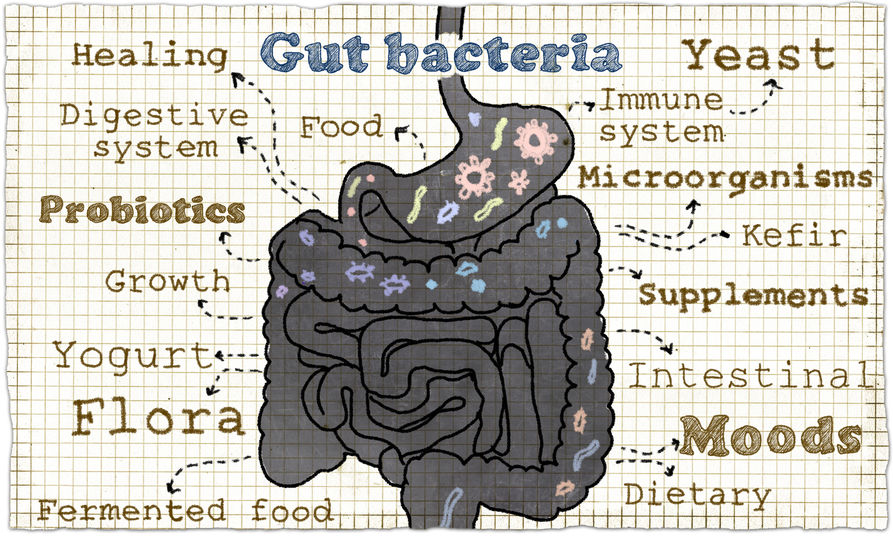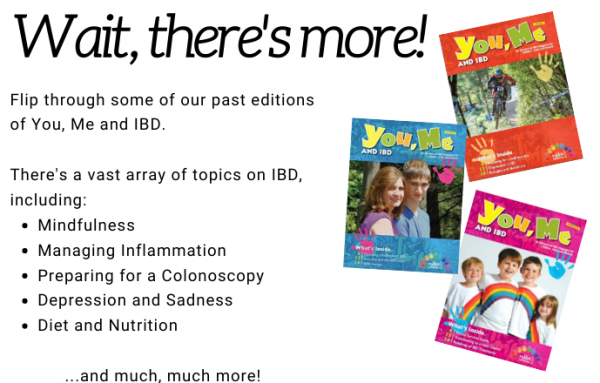Education Guides
One of Robbie’s Rainbows most important goals is to help children, teens and parents feel supported and have the ability to access health information that is easy to understand. The education resources we build cover a variety of topics, specific to childhood digestive diseases. All of our materials are written in partnership with healthcare providers and are evidence-based.
We believe in building valuable resources and encourage you to explore our growing library of educational materials. If there’s something we haven’t covered and you’d like to suggest a topic, contact us!

Managing IBD Pain
Pain is a common challenge for IBD patients and is no fun for kids or their families, causing stress and distress. To learn what you can do to help manage discomfort associated with IBD, click here.

Depression and Sadness
Unpredictability is hard for most of us, but it’s even more difficult for kids and teens. IBD by nature is unpredictable and its symptoms can be sudden and disruptive. To read more about strategies and mental health, click here

Diet and IBD
IBD can affect the amount of nutrients your digestive system absorbs, so it’s important to ensure you are getting the essentials. To learn how, click here

Fecal Transplantation in IBD
More than 90 per cent of the cells living within our bodies come from bacteria. The use of stool from healthy human donors to treat a variety of digestive conditions, including Clostridium difficile (C.dif) colitis, Crohn’s disease and ulcerative colitis, has continued show promise in improving inflammation and symptoms in small scale studies. Learn more about fecal translations and their promise as a potential therapy in treating IBD, click here.

How to Swallow Pills
Swallowing pills can be difficult, frustrating and sometimes they simply just won’t go down! Alas, Dr. Kaplan is here to help! With her colleagues, Dr. Kaplan worked with patients at the Alberta Children’s Hospital to perfect the duck dance, a technique to swallow pills with ease.
It’s fun and easy, give it a try, click here!

Preparing for Your Clinic Appointments
Clinic appointments are the perfect opportunity to share with your GI and IBD nurse how well you are doing, any challenges you may be having and are an investment in building self-management skills. These are important skills that will help you when you transition into adult IBD care. In this article, we share how you can make the most of your clinic appointment, click here.

MRE’s in IBD
MRE’s are very important test that help your gastroenterologist see how your small and large intestines are doing and how they are responding to treatment. An MRE scan can last from 30-60 minutes and, like other tests, requires a little bit of prep on your part, to make sure radiologist can capture the best images possible. To learn more about the in’s and out’s of an MRE, click here.

Mindfulness and IBD
Mindfulness is growing in popularity with those managing chronic diseases, including IBD. Mindfulness involves a form of meditation or relaxation, being aware of ones thoughts, feelings and physical sensations at the very moment they occur. It’s an excellent way to help cope with pain, distress and stress. To learn more about mindfulness and useful techniques, click here.

Monitoring Inflammation
To best assess and control inflammation, gastroenterologists and IBD nurses can now look to specialized diagnostic tests to best manage and control inflammatory bowel disease. To learn more about different monitoring techniques, including therapeutic drug monitoring (TDM) and fecal calprotectin testing (fCal) click here.


